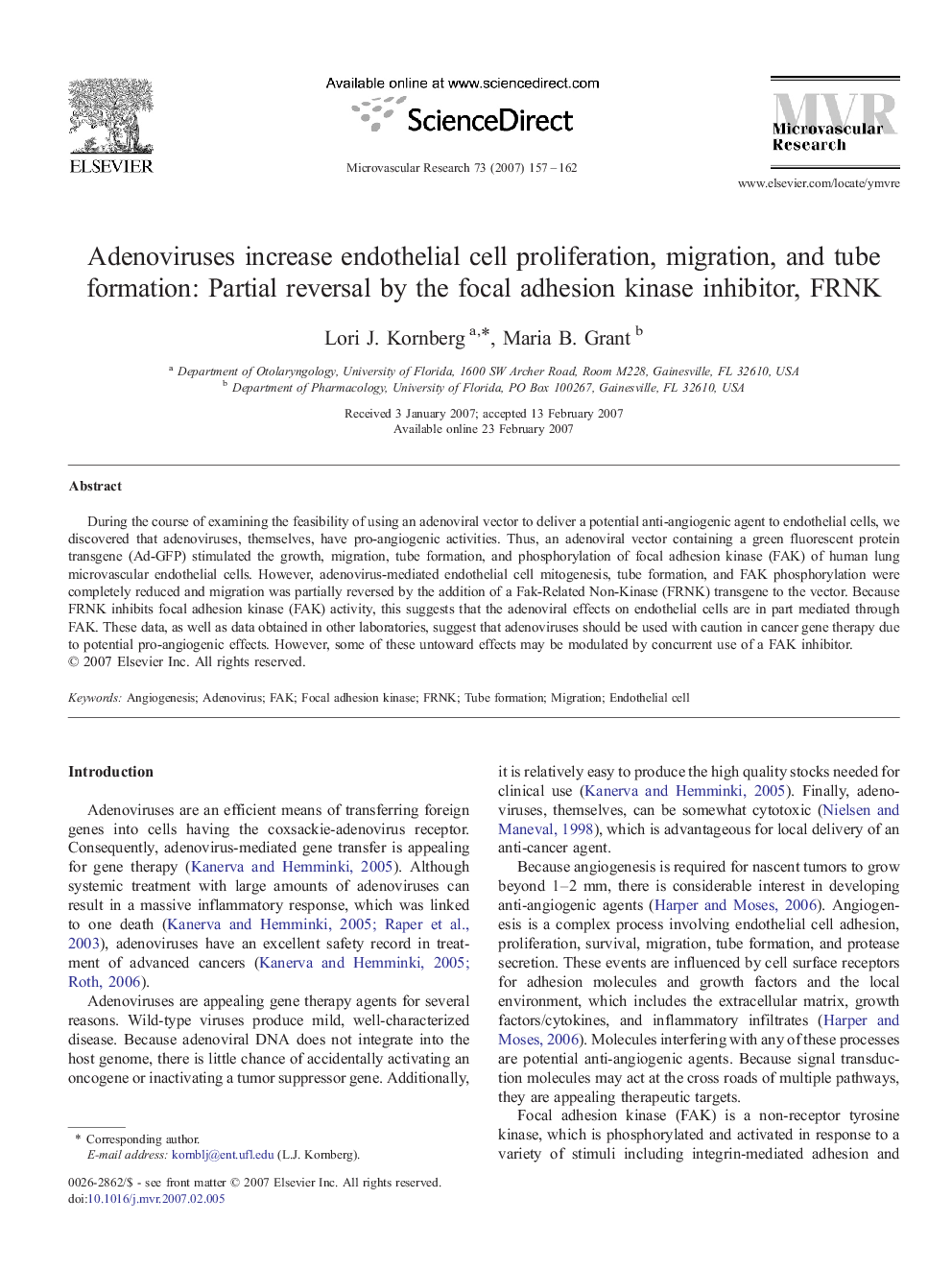| Article ID | Journal | Published Year | Pages | File Type |
|---|---|---|---|---|
| 1995496 | Microvascular Research | 2007 | 6 Pages |
Abstract
During the course of examining the feasibility of using an adenoviral vector to deliver a potential anti-angiogenic agent to endothelial cells, we discovered that adenoviruses, themselves, have pro-angiogenic activities. Thus, an adenoviral vector containing a green fluorescent protein transgene (Ad-GFP) stimulated the growth, migration, tube formation, and phosphorylation of focal adhesion kinase (FAK) of human lung microvascular endothelial cells. However, adenovirus-mediated endothelial cell mitogenesis, tube formation, and FAK phosphorylation were completely reduced and migration was partially reversed by the addition of a Fak-Related Non-Kinase (FRNK) transgene to the vector. Because FRNK inhibits focal adhesion kinase (FAK) activity, this suggests that the adenoviral effects on endothelial cells are in part mediated through FAK. These data, as well as data obtained in other laboratories, suggest that adenoviruses should be used with caution in cancer gene therapy due to potential pro-angiogenic effects. However, some of these untoward effects may be modulated by concurrent use of a FAK inhibitor.
Related Topics
Life Sciences
Biochemistry, Genetics and Molecular Biology
Biochemistry
Authors
Lori J. Kornberg, Maria B. Grant,
